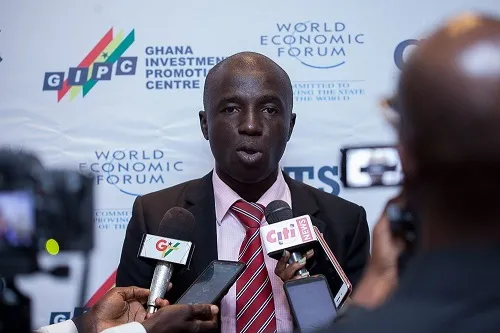The recent announcement by Ghana’s Minister for Trade and Industry, Kobina Tahir Hammond, to regulate cement prices has sparked significant public concern and criticism from various quarters.
The move, intended to curb the soaring cost of cement in the country, has been met with strong opposition from various quarters, including leading civil society leaders and economic analysts.
Prominent figures such as Dr. Kwame Asiedu Sarpong, D&D Fellow at CDD-Ghana, and Kofi Asare, Executive Director of Africa Education Watch, have voiced their disapproval, describing the proposal as a regressive measure reminiscent of the price control days.
They argued that such interventionist policies could stifle market dynamics and deter potential investors, ultimately harming the economy.
The Director of Cuts International (West Africa), Appiah Kusi Adomako, wading into the conversation, vehemently criticized Honorable K.T Hammond for what he terms the minister’s “firefighting approach”.
He argued that such regulatory measures could deter potential investors from entering the Ghanaian market.
“In this democratic dispensation, it will be very bad for the government to say that look, we want to regulate prices. And when you do that, it will send signals to potential investors in other industries because whoever is coming to invest in your market will be concerned that if there is any chance that the government regulates prices, then I will not even come to the country to operate”.
Appiah Kusi Adomako, the Director for Cuts International (West Africa)
Mr Adomako further emphasized that the focus should be on addressing the root causes of price hikes rather than imposing regulations.
“Let us look at the key factors, and we know that the cedi-dollar exchange rate is a factor. The cost of electricity is also a factor, and so if the Public Utilities Regulatory Commission (PURC) reviews tariffs every quarter, and the production prices are going up, we need to see how we can stabilize the cedi”.
Appiah Kusi Adomako, the Director for Cuts International (West Africa)
Highlighting the broader economic context, Mr Adomako pointed out that cement is imported into Ghana, and the fluctuating dollar-to-cedi exchange rate is a significant driver of price increases.

Furthermore, Mr Adomako criticized the minister’s selective focus on cement prices, pointing out that other essential commodities like rice, cooking oil, and various consumer goods are also experiencing price hikes due to similar economic pressures.
He argued that if the government is to regulate prices, it should consider a wide range of commodities that are also experiencing price hikes, such as rice, cooking oil, and other consumer goods.
“But I am not sure that the minister can go to Makola and tell the importers of those products what to do. So long as we are in a free and competitive market, the economic aspects are the ones that will determine the prices of these goods”.
Appiah Kusi Adomako, the Director for Cuts International (West Africa),
In fervent call to action, the Director for Cuts International (West Africa), Appiah Kusi Adomako called for the government to adopt a competition law approach rather than price regulation.
He stressed the need to address major issues contributing to the alarming increase in cement prices, including the fluctuation of the exchange rate, high inflation, and rising fuel prices.
Mr Adomako emphasized that by stabilizing these factors, the government can create a more conducive environment for both consumers and investors, ensuring long-term economic stability and growth.
Mr Adomako’s remarks underscore the need for a more nuanced and strategic approach to economic management.
Rather than imposing price controls, which could disrupt market equilibrium and discourage investment, the government should focus on stabilizing the macroeconomic environment.
This, as earlier pointed out by Mr Adomako and several critics includes the critical need for the government to address the volatility of the exchange rate, curbing inflation, and reducing fuel prices.
In conclusion, while the intention behind the Trade Minister’s proposal to regulate cement prices may be to alleviate the burden on consumers, the potential repercussions on the broader economy cannot be overlooked.
As Adomako and other critics have highlighted, a sustainable solution lies in addressing the fundamental economic challenges driving the price increases. This approach will not only ensure market stability but also foster a conducive environment for investment and growth.
READ ALSO: Biden And Trump Engage In Fiery Debate























